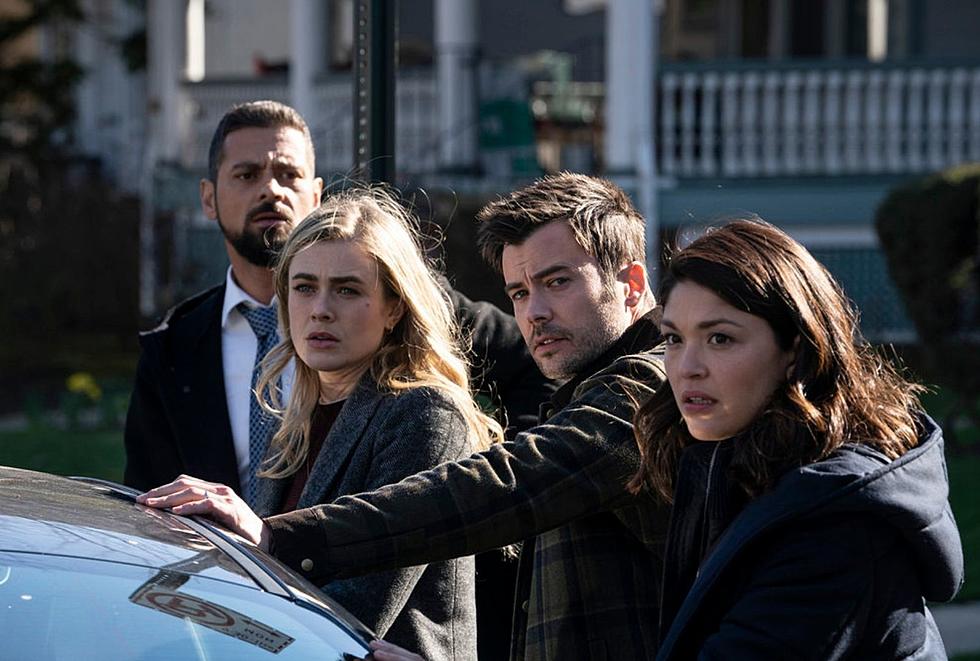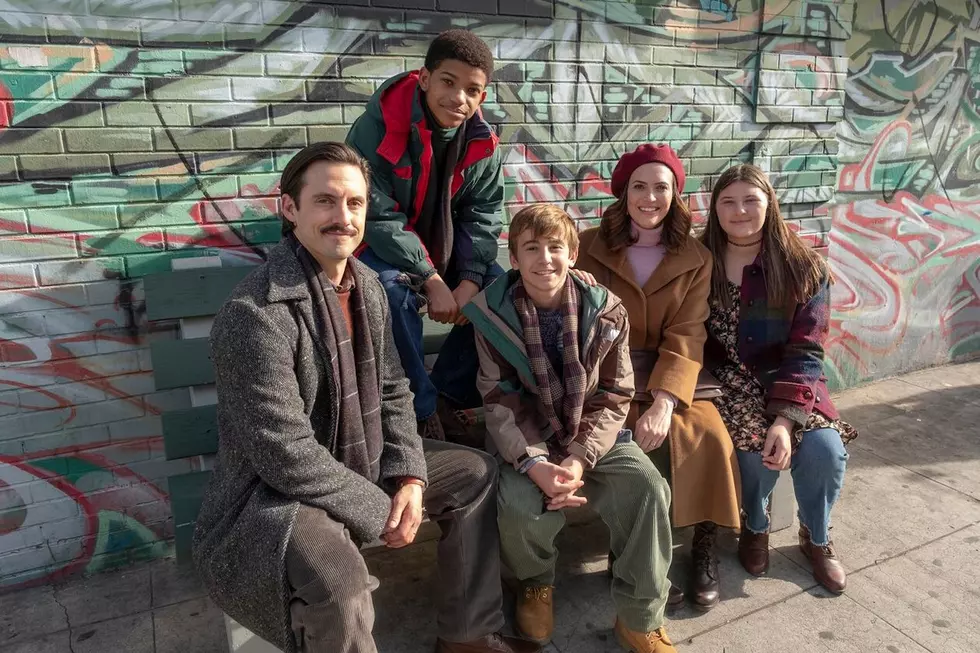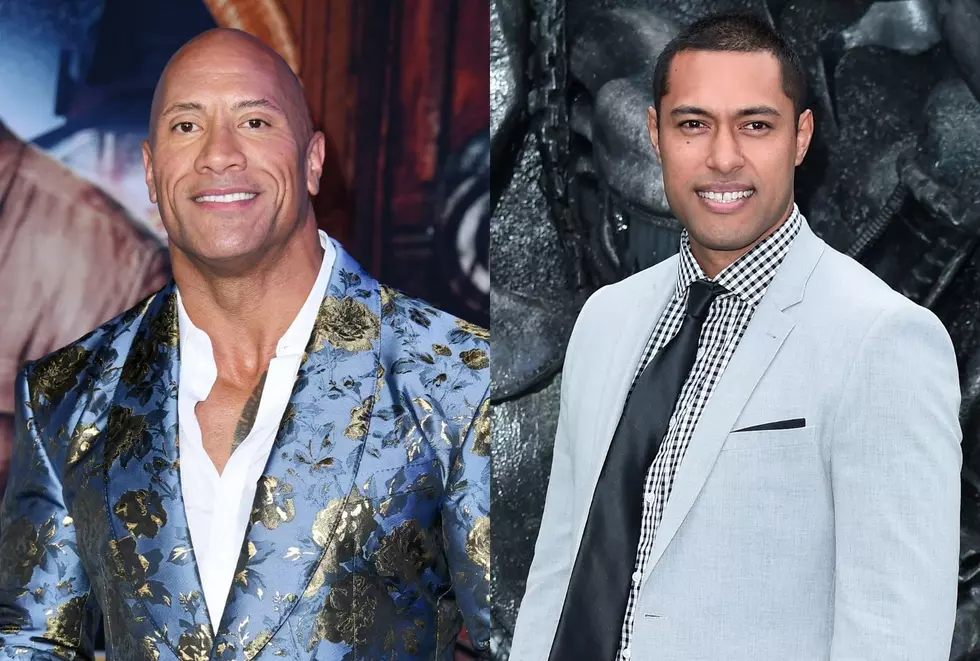
Review: ‘Hannibal’ Season 3 Premiere ‘Antipasto’ Serves Up the Most Chilling, Gorgeous Episode to Date
The most gorgeous, cinematic show on television is back — Hannibal’s Season 3 premiere is rife with sickeningly stunning shots and dripping with dread. “Antipasto” takes us on a trip to Italy to spend the entire hour with Hannibal and Bedelia, as the former dispenses with his “person suit” to give us a far more intimate — but no less formal — experience.
“What have you gotten yourself into, Bedelia?” That question is a gloriously loaded one, the layers of which have been stacked beautifully throughout the premiere hour. “Antipasto” gives us — I’m sorry — a lot to chew on, and tugging at any particular thread unravels further thematic layers. The way Hannibal manipulates those around him, and specifically those with whom he feels a certain…closeness…is alarmingly complex. We have the sudden, horrible recognition of this horror the way Bedelia does in the bath, or with her hand down the throat of Hannibal’s former patient — these moments are far more dreadful than Hannibal’s acts of violence; in fact, they make them look positively quaint by comparison.
Now in Italy, Hannibal is angling for a professorship by killing off his competition, but this hasn’t been an entirely murderous exile — as he reminds Bedelia, he hasn’t killed many people during their residency, but he’s only just begun. Hannibal meets Anthony Dimmond, a man who is what Hannibal would define as rude: he speaks poorly of others behind their back and makes sexual insinuations at the dinner table. That dinner scene is incredibly suspenseful, as Hannibal reveals that the oysters he’s prepared are often used to feed other animals to make them taste better. But at least Bedelia isn’t eating “anything with a central nervous system right now.”
And although she is obviously distressed during that dinner, we pick up on her discomfort long before. Gillian Anderson’s facial expression, eyes closed and reclining in what should be a soothing bath, is so acutely powerful — with her eyes closed and her face ever-so-slightly tensed, we sense her enduring dread and helplessness. Director Vincenzo Natali frames her from behind at first, giving us the distinct fear that Hannibal could — and might — creep up from behind and end her life at any given moment. It’s not that he will; it’s that he could. And it’s that feeling that Bedelia must live with.
Must. That’s the key word. “Antipasto” deftly explores the gray areas between control and helplessness, between being an observer and acting as a participant. Bedelia is all of these things at once, though Hannibal insists on dividing and defining her. Her mere presence and psychological expertise makes her a participant, although she is morally unwilling, but she is powerless to object unless she’d like to end up on the table.
These gray areas feed aesthetically into the flashbacks with Gideon, all presented in black and white. It’s possible that at least one of these scenes (the first) necessitated the lack of color due to the graphic content, and thus inspired a wonderful aesthetic choice — and this idea in itself feeds back into Hannibal and Bedelia’s discussion of the way Hannibal’s ethics have become his aesthetic.
“Antipasto” is an utterly brilliant hour, where both the narrative and visual themes consume each other, reflecting Hannibal’s Ouroboros style of manipulation, in which everything circles around and feeds on itself. A brief moment in flashback shows us the incident that led to Bedelia’s forced subservience to Hannibal, as she pulls her bloody arm out of the throat of Neal Frank (Zachary Quinto, whom we’ll see more of soon, I imagine), a former patient of Hannibal’s who was undoubtedly manipulated and used as a pawn to get to Bedelia — it’s another one of his labyrinthine mind games, so startling in both its design and effectiveness that this, not his exceedingly cold and violent acts, make him a real monster.
Natali and creator Bryan Fuller not only deliver the single most dread-filled episode to date, but the most horrific moment: the opening sequence, although shot in black and white, features Hannibal serving our dearly departed Abel Gideon his own leg for dinner. We saw Hannibal feeding Gideon himself for dinner in Season 2, but not quite to such sickening effect. The desaturation stimulates our imagination, encouraging further, more gruesome consideration of the act.
What is Hannibal’s ultimate end game? By removing Will from the equation in the premiere, we spend an entire hour really getting to know Hannibal more intimately than ever before, inspiring us — like Abel — to ponder the good doctor’s motives. In previous seasons, we’ve watched Hannibal admire and toy with those within whom he senses a familiarity, a similarity, a kinship. Hannibal is searching for someone to respect and, in a sense, to love, but that love is impossible — if he finds a truly kindred spirit, only one of them can live. And in this way, Hannibal becomes a tragic character.
Perhaps, as Abel ponders, it’s only a matter of time before Hannibal finds himself in Abel’s position; rather than being the one to slowly pick apart and consume, he will become the consumed. And perhaps that is Hannibal’s version of a happy ending to this morbid fairy tale. Abel asks how he’ll feel about it, when this is all happening to him, but the tragedy is that he won’t be alive to reflect on how it felt at all.
Additional Thoughts:
- That was a straight-up Austin Powers d—k move with the towel and the wine glass, Hannibal.
- “It’s not that kind of party.” WHY THE HELL NOT?
- “It’s only cannibalism if we’re equals.” Today in the ethics of Hannibal Lecter: Hannibal doesn’t believe he is a true cannibal.
- Also, can we stop for a moment to once again remind ourselves that a character on one of the best shows on television (and one of the most iconic movie characters of all time) is a cannibal named Hannibal? I mean. Come on.
- I am really digging Bedelia’s whole “Where in the World is Carmen Sandiego?” ensemble.
- It cannot be stated enough how gorgeous this episode was — perhaps the most artistic one to date. Natali and Fuller really indulged in their creative sensibilities, and I hope it’s just a, um, taste of what’s to come.
More From ScreenCrush









